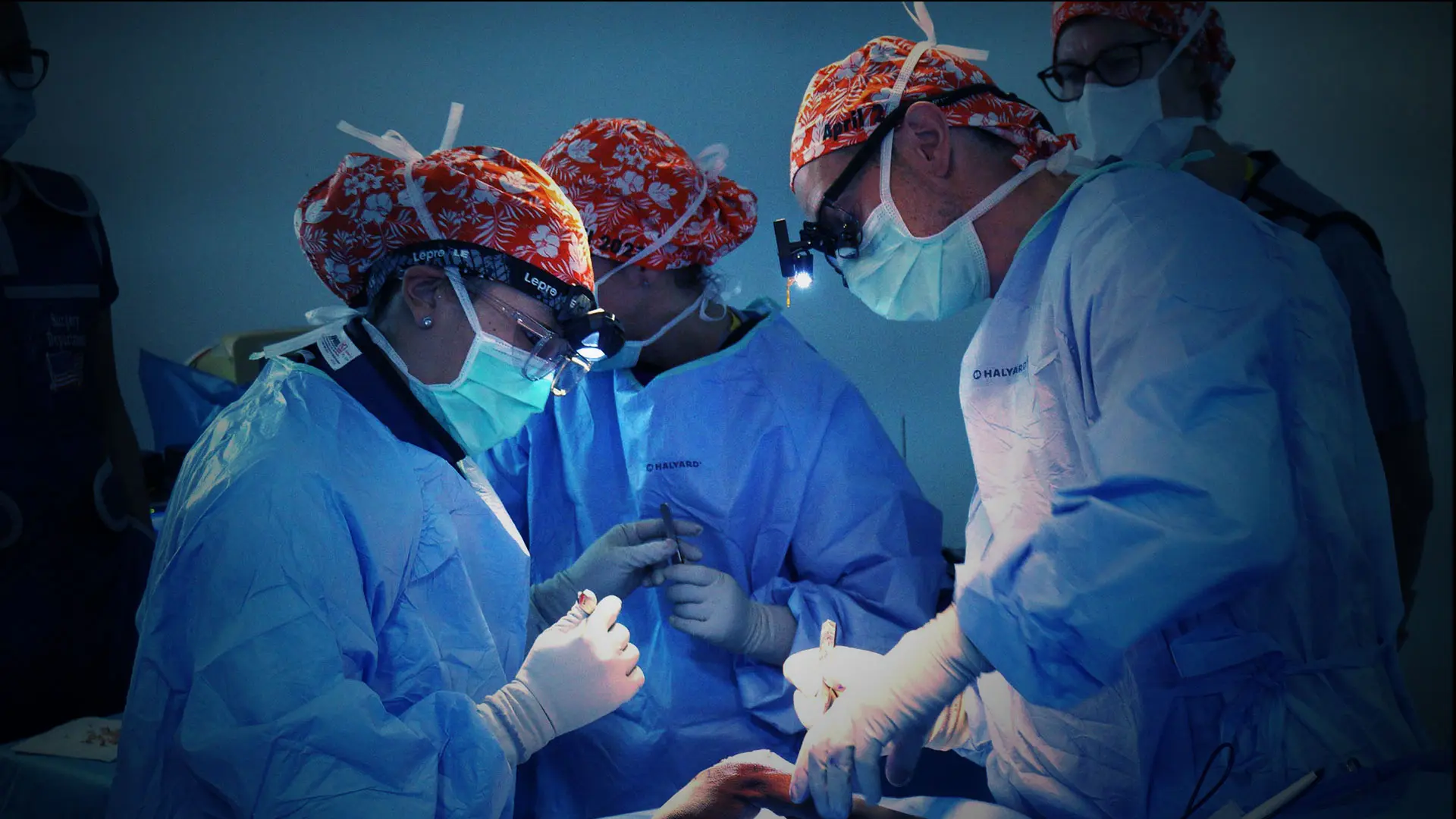For Meghan Kelly, MD, PhD, Assistant Professor of Orthopedics at the Icahn School of Medicine at Mount Sinai, hands-on work with needy populations around the world is an inextricable part of her job as a busy foot and ankle specialist in New York City. Building on her postdoctoral training at Rigshospitalet in Copenhagen and surgical rotations in Germany and other countries, it was a natural step for her, in September 2022, to become chair of the Humanitarian Services Committee of the American Orthopaedic Foot & Ankle Society (AOFAS). Using her logistical skills, she is clearing the way for visiting surgeons and support staff to provide critical orthopedic care to some of the neediest children and adults in countries where such resources and knowledge are scarce.
“There’s so much to be learned as a physician by observing how the practice of medicine is affected by a country’s culture and people,” says Dr. Kelly, who paired her professional degree with a special focus on medical education. “I’ve always had an interest in humanitarian work and believe it embraces the kind of outreach that truly reinvigorates our sense of why we went into medicine in the first place.”
Since becoming chair of AOFAS's Humanitarian Services Committee in a post-COVID-19 world, the learning experience has been quick and richly rewarding for Dr. Kelly. After spending time in the Dominican Republic in April to prepare for the arrival of an AOFAS team later this year, her one regret was not being able to stay longer to help patients—many of whom are living with chronic conditions of the lower extremities, and ranging in age from teenagers to seniors. “It just reinforced my desire to return as a surgeon so we can truly make a difference in the lives of people whose mobility and lives may be severely limited by chronic foot deformities, infections, or trauma,” she remarks. “Because they don’t have the financial means, many of them are stuck with conditions that might date back 10 years or more and now involve serious complications.”
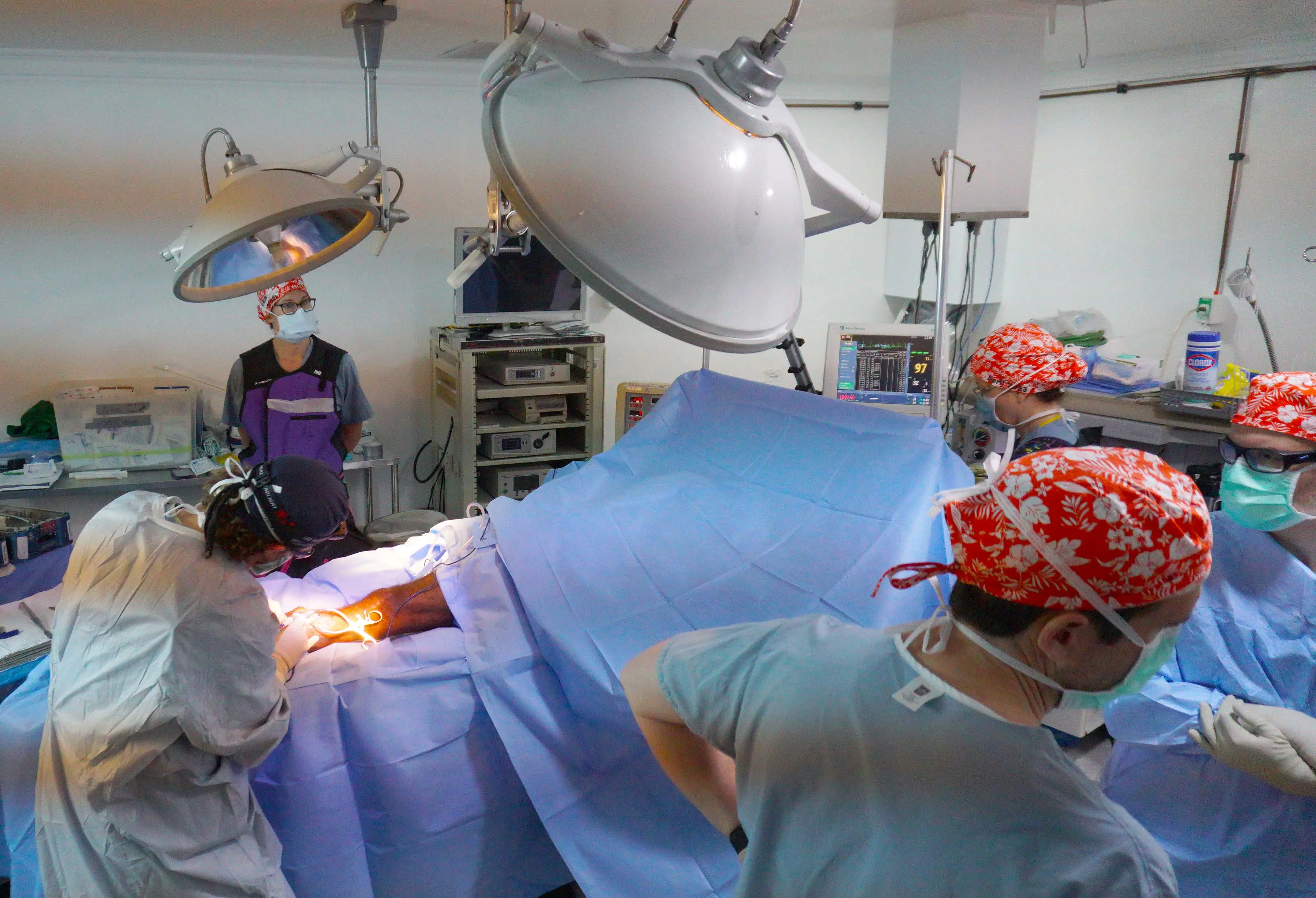
GLORI medical team performs surgery with support from hospital staff and residents at El Buen Samaritano Hospital in La Romana, Dominican Republic.
AOFAS has already opened the door to treatment for thousands of people through its overseas outreach missions to Kenya and Vietnam, with plans to expand to the Dominican Republic. To that end, Dr. Kelly visited the country at the behest of Great Lakes Orthopedic Relief International (GLORI), a Michigan-based nonprofit that supports the social and economic infrastructure of the Dominican Republic by providing free orthopedic health care for poor Dominican and Haitian communities, to observe how it organizes, conducts, and funds its own orthopedic surgical trips. Dr. Kelly’s responsibilities prior to the arrival of a volunteer AOFAS team of two surgeons, an anesthesiologist, an X-ray technician, and nurses were expansive, including evaluating temporary housing and meals and safety of the area, ensuring that adequate operating room space was available, and that essential surgical hardware, such as implants and instrumentation, was delivered to the local hospital in a timely fashion.
“My job is to make sure these trips are as seamless as possible for our surgeons,” Dr. Kelly explains, “so all they have to do is carve out time away from the office and are able to hit the ground running once they arrive.” As for workload, orthopedists usually perform about 25 surgeries in the course of their weeklong visit, meeting with prospective patients early in the week to determine their suitability for such common procedures as repairing nonunions in adults by restoring damaged tissue and bones, or correcting foot deformities in pediatric patients with plates and screws or soft tissue releases.
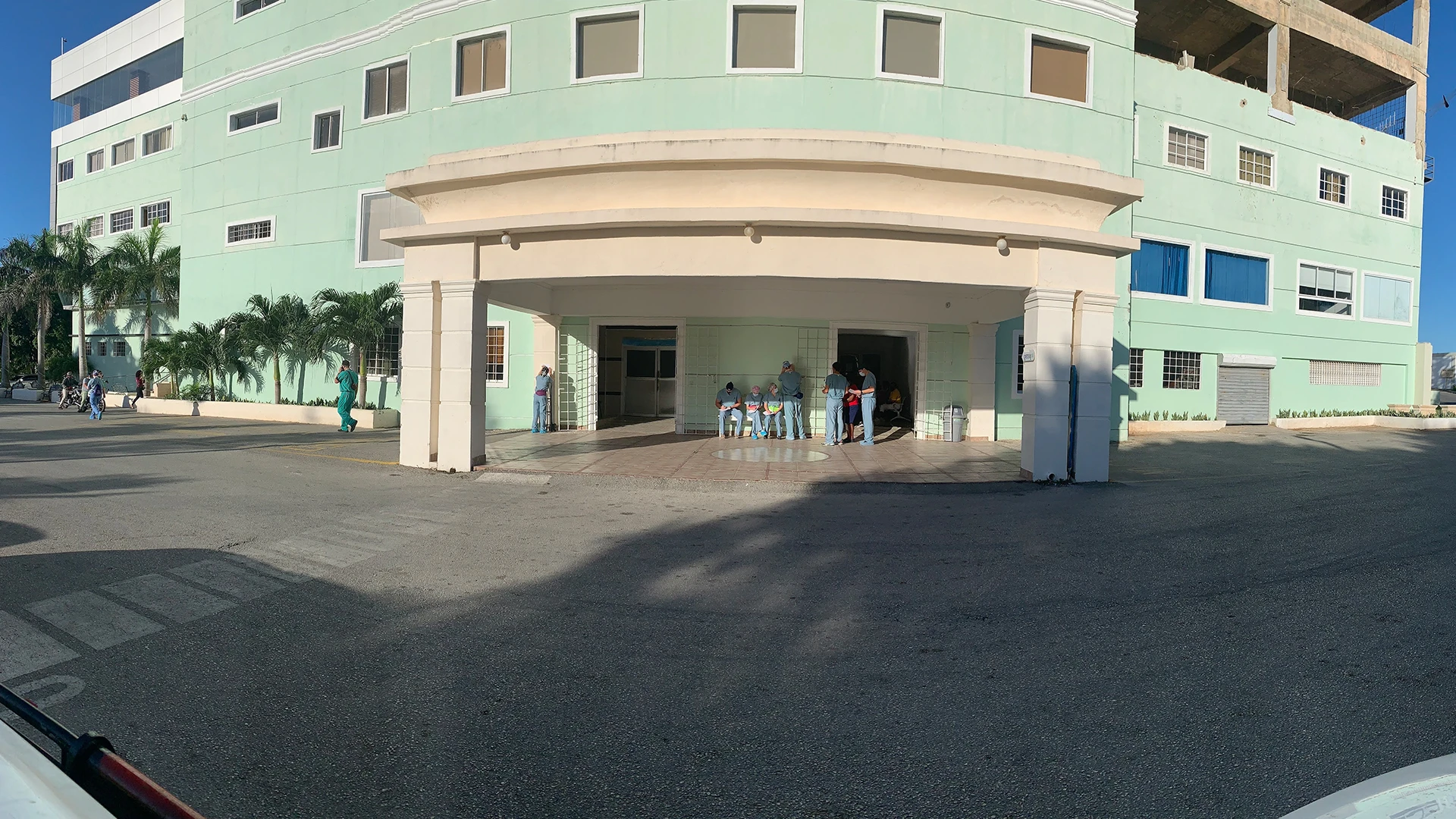
El Buen Samaritano Hospital in La Romana, Dominican Republic.
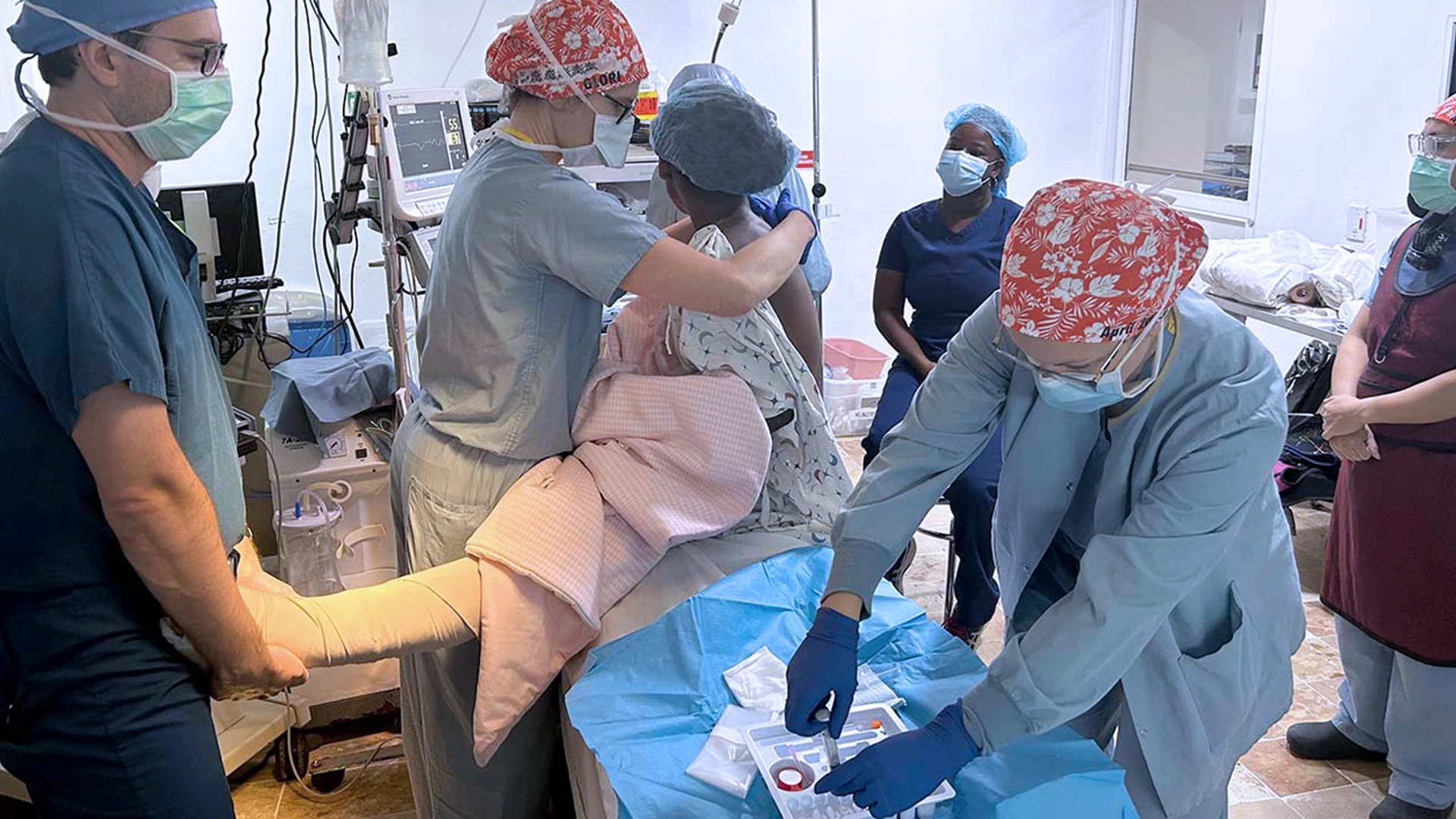
GLORI medical team, hospital staff, and residents care for a patient who has undergone surgery at El Buen Samaritano Hospital.
Dr. Kelly reports there is no shortage of physicians offering assistance. Indeed, 13 applicants vied for two surgical spots during the AOFAS mission to AIC-CURE International Hospital, a children’s hospital in Kijabe, Kenya, in November 2022, the first such visit after a hiatus due to the COVID-19 pandemic. While on-site, surgeons work alongside Kenyan attendings and resident orthopedic surgeons in both the operating room and clinic, providing valuable education and training. The goal is to ensure this exchange will translate into informed-and-effective follow-up care for patients once the visiting team has departed.
“With the restrictions of the pandemic past us, we hope to expand to at least two missions a year to different parts of the world given the interest within the surgical community to support our activities,” Dr. Kelly says. “We try to keep the visits short because we know it takes valuable time away from the physicians’ home practice. But the nice thing about our work is that we handle all the details of their trip so they can just fly down and focus on helping people.”
Featured
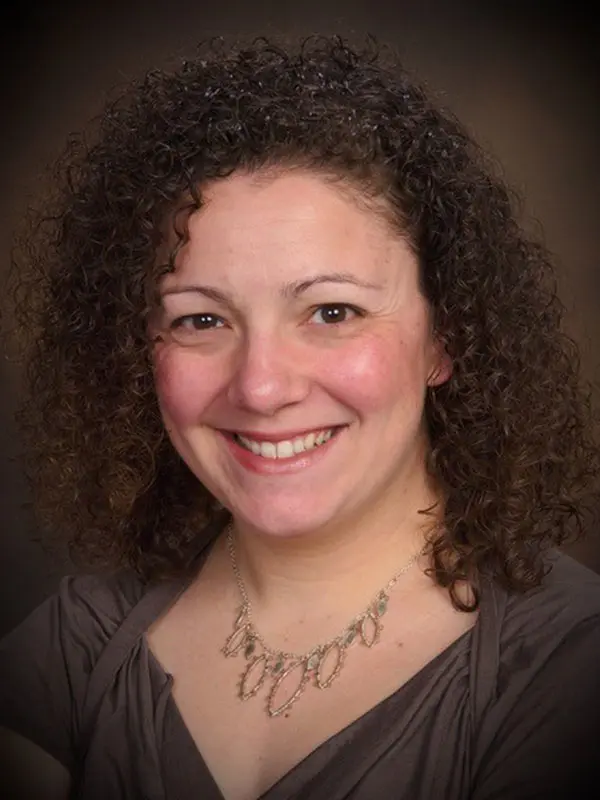
Meghan Kelly, MD, PhD
Assistant Professor of Orthopedics (Orthopedic Surgery)
